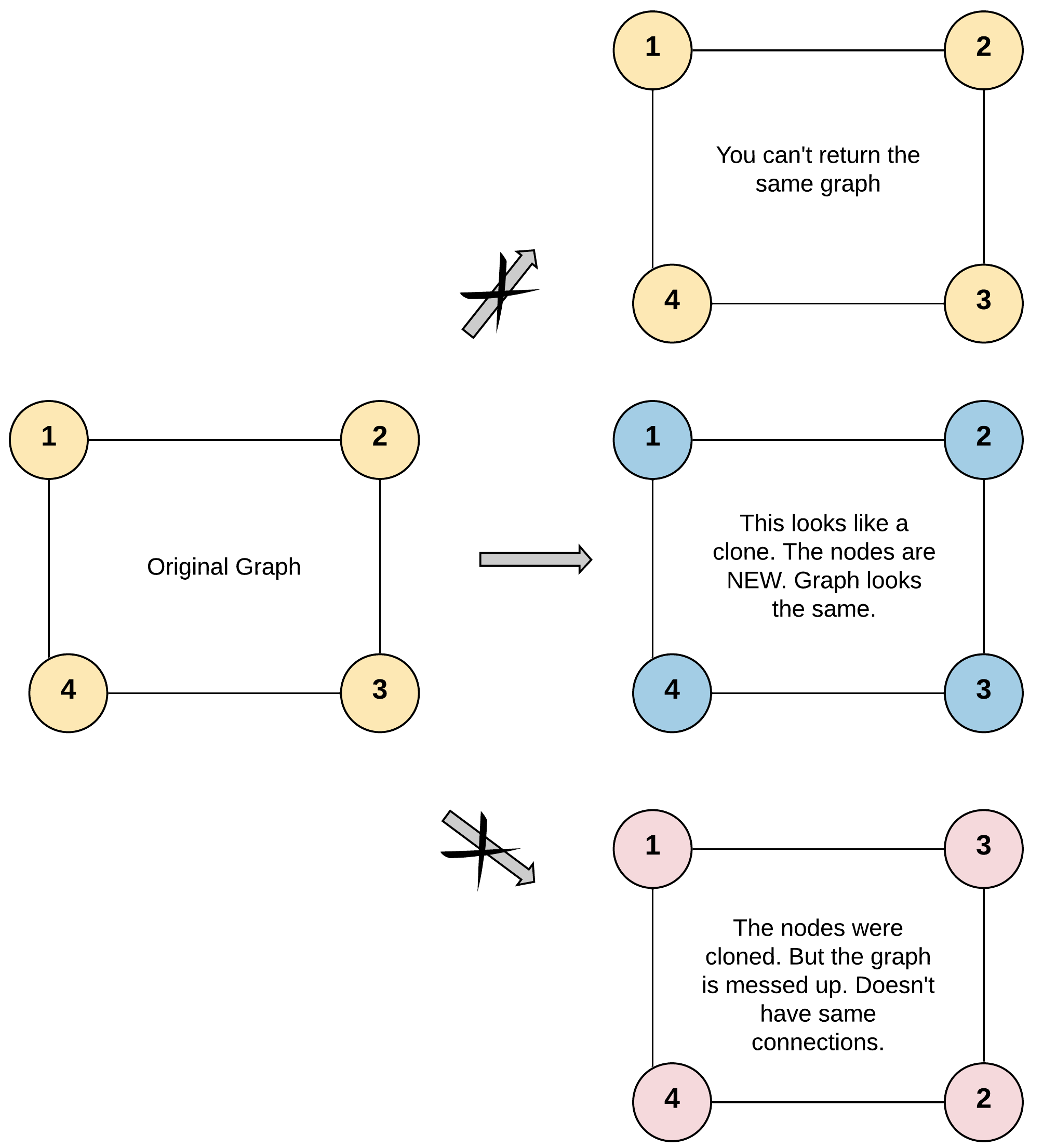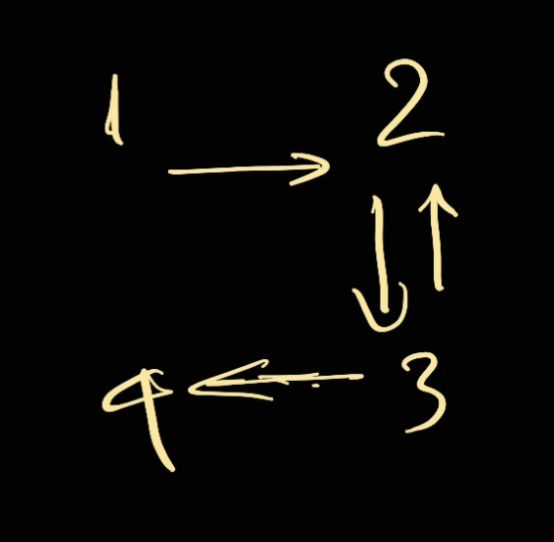Clone Graph
Question
Given a reference of a node in a connected undirected graph.
Return a deep copy (clone) of the graph.
Each node in the graph contains a value (int) and a list (List[Node]) of its neighbors.
class Node {
public int val;
public List<Node> neighbors;
}

Constraints:
- The number of nodes in the graph is in the range
[0, 100]. 1 <= Node.val <= 100Node.valis unique for each node.- There are no repeated edges and no self-loops in the graph.
- The Graph is connected and all nodes can be visited starting from the given node.
Solution
We can do a DFS traversal for this question. The reason why we do a DFS is because for each created node, we need to create its neighbors as well. Using BFS would not be able to create the neighbors.
Intuition
For each node, we can go through and then create the neighbors. For each neighbors we recursively doing the same creation.
Looking at this scenario below:

Imagine using recursion, we're now reached to node 4. Since in node 3, we've already added 4 as a neighbors. Because of that, from 4 we need to add 3 as its neighbors as well.
Now for DFS traversal, you will need a visited set. However if 3 is already visited, we need to have a way to return the cloned node 3 that we have already created. Given the constraint is Node.val will be unique, we can do this easily.
Implementation
from typing import *
from collections import deque
class Node:
def __init__(self, val = 0, neighbors = None):
self.val = val
self.neighbors = neighbors if neighbors is not None else []
class Solution:
def __init__(self) -> None:
self.visited = {}
def cloneGraph(self, node: 'Node') -> 'Node':
if not node: return None
if node.val in self.visited: return self.visited[node.val]
clonedNode = Node(node.val)
self.visited[node.val] = clonedNode
for neighborNode in node.neighbors:
clonedNeighbour = self.cloneGraph(neighborNode)
clonedNode.neighbors.append(clonedNeighbour)
return clonedNode
Time complexity: $O(|V| + |E|)$ — since we're doing DFS traversal for each node
Space complexity: $O(|V|)$ — for the vertices that we've created.